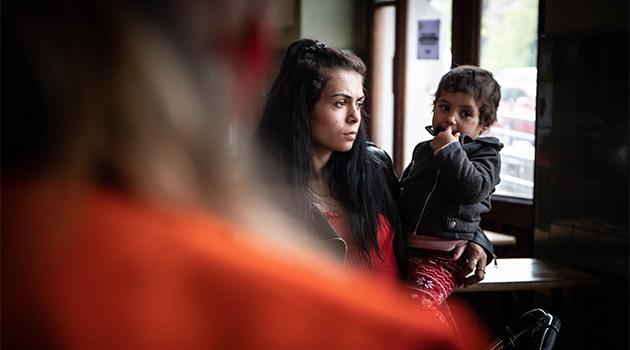Czech Government proposes stricter rules for temporary protection for refugees from Ukraine

An amendment to the Act on Residency of Refugees from Ukraine in the Czech Republic, which has been nicknamed “Lex Ukraine”, explicitly rejects temporary protection for European Union citizens, extends the deadline for processing an application for temporary protection to 60 days, and reduces the time during which refugees from Ukraine must report changes in their residency from 15 days to three days. Deputy Prime Minister Vít Rakušan (Mayors and Independents – STAN), speaking after Wednesday’s cabinet session, which discussed the amendment, announced it at a press conference and the Labor and Social Affairs Ministry later clarified it in a press release yesterday.
“The way in which we are supporting citizens of Ukraine who are fleeing their homes that have been destroyed by war has required some changes. We are approaching these changes on the basis of the experience we have gained,” said Labor and Social Affairs Minister Marian Jurečka (Christian Democrats – KDU-ČSL).
“We are still in a completely unprecedented situation and we have to respond adequately to current developments. All of the adjustments approved by the Government emerged from the requirements of the crisis team, non-profit organizations, and other experts,” Jurečka claimed.
One new aspect is that the applicants for temporary protection from Russia’s war on Ukraine will have to prove to the Czech authorities that they have accommodation, unless their housing has been provided by a Regional Assistance Center. When disbursing humanitarian benefits, the condition will be verified that those given temporary protection are actually on Czech territory.
“For the disbursal of humanitarian benefits, the actual presence of the foreign national in the Czech Republic is required,” explained Minister Jurečka. Refugees will also not be entitled to humanitarian benefits if they are provided accommodation free of charge that includes meals and the provision of basic personal hygiene products.
“In those cases, the important life needs of such people have been secured. The humanitarian benefit is designed to cover the most basic needs,” Jurečka said.
From the beginning of July, the state contribution to households showing solidarity with Ukraine by housing refugees will also undergo changes. “It is necessary to distinguish between those households providing accommodation in a separate unit and those households where the refugees share an accommodation space with the other members of the household showing solidarity,” said Jurečka.
The current regulations count on paying CZK 3 000 [EUR 120] per refugee per month (at a maximum of four refugees per household) and will apply until June; the new arrangements, for which the amounts of money corresponding to the accommodation types have not yet been determined, will be reflected in a subsequent Government Order with effect from July. The amendment also includes shortening the entitlement to health insurance to 180 days for a refugee who is temporarily protected, said the Interior Minister.
That change concerns insured refugees who are temporarily protected and are between the ages of 18 and 65. The deadline will apply according to the date of the provision of temporary protection.
The changes, according to the Interior Minister, have arisen for procedural reasons. He explained that the extension of the time needed to process a request for temporary protection is due to the fact that the Czech state is newly inspecting the stamps proving that the passport holder crossed the border of Ukraine into the Schengen area.
The requirement for a refugee who is temporarily protected to more quickly report any change of residence to the authorities corresponds to the need to quickly adapt the education and healthcare systems to the numbers of refugees from Ukraine. The aim of shortening the health insurance period is to motivate the temporarily protected to participate in work.
The Russian invasion of Ukraine began on 24 February. The Interior Ministry has issued 345 200 visas for protection to refugees.
Almost two-fifths of temporary protection visas were given to children. Women make up 73 % of the adult refugees.
With a temporary protection visa, refugees can get work freely without any obstacles and do not need permits. According to Rakušan, about 200 000 refugees from Ukraine are now residing in the Czech Republic, but some have returned to their homeland.
More than 50 000 refugees from Ukraine have found work in the Czech Republic. Employers have been reporting the hiring of refugees from Ukraine to the Czech Labor Office.
